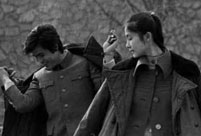BEIJING, Dec. 18 -- China's anti-corruption watchdog announced on Wednesday that a university vice president is currently under investigation for violations.
An Xiaoyu, vice president of Sichuan University, is being investigated for suspected serious discipline violations, according to a brief statement from the Central Commission for Discipline Inspection (CCDI) of the Communist Party of China.
An's investigation comes after the case of Cai Rongsheng, another university official confirmed to be under investigation.
The Ministry of Education revealed recently that it had launched an investigation of Cai, director of the admissions office of Beijing-based Renmin University of China.
Media reports alleged that Cai was connected to corruption cases involving large amounts of money.
On Tuesday, a discipline inspector sent by the CCDI to the Ministry of Education urged further anti-corruption measures, including a thorough anti-graft investigation of Chinese universities' admission processes to ensure educational equity.
Wang Liying, director of the CCDI discipline inspection team at the ministry, made the remarks in an article published on the ministry's website.
Despite previous anti-graft efforts in the education sector, criminal and disciplinary violations in some key parts of the sector have not been fundamentally contained, she said.
The probe will target possible corruption and discipline violation cases in the universities' independent admissions processes, the article said.
Some Chinese universities are allowed to recruit a certain number of students through their independent admission exams apart from the annual unified national university entrance exam.
However, this discretion in the admissions process has generated the risk of corruption.
Educational equity is a cornerstone for fairness throughout society, and measures to rectify corruption in the education sector are imperative to promote equality, Wang said.
Wang said efforts will also be made to improve the independent admission system and fix the loopholes.
Universities and other schools are also not allowed to collect money in the name of donations or special fees as part of the terms of admission, she said.
Wang said that as reform efforts in the education sector advance, more problems regarding corruption, resource waste and asset losses may be exposed, and the public's call for educational equality will also grow.
Corruption problems in the allocation of educational resources, such as the conferring of professional titles, distribution of research funds and admissions quotas, should be dealt with seriously, Wang said.
The meddling of school officials in textbook selection, infrastructure construction, and the operation of school-owned enterprises will also be investigated.
Transparency in university administration should be enhanced, the inspector said.
In violation cases, both the directly responsible parties and relevant leaders should be held accountable, she said.
Wang urged strengthened supervision and management of university and school teachers, as well as the creation of a favorable environment for professionals to concentrate on research and studies.
 Heavy cargo flights taking off
Heavy cargo flights taking off In pictures: PLA's digital equipment
In pictures: PLA's digital equipment  Americans mark Thanksgiving Day with parades
Americans mark Thanksgiving Day with parades Love searching stories in cities
Love searching stories in cities  Shanghai shrouded in heavy fog
Shanghai shrouded in heavy fog Office ladies receive ‘devil’ training in mud
Office ladies receive ‘devil’ training in mud Changes in Chinese dancing culture
Changes in Chinese dancing culture  Highlight of Mr Bodybuilding and Miss Bikini Contest
Highlight of Mr Bodybuilding and Miss Bikini Contest  Picturesque scenery of Huanglong, NW China
Picturesque scenery of Huanglong, NW China Naval escort fleet conducts replenishment
Naval escort fleet conducts replenishment Jinan Int'l Airport welcomes passenger
Jinan Int'l Airport welcomes passenger Hukou reforms target 2020: official
Hukou reforms target 2020: official Record of Chinese expressions in 2013
Record of Chinese expressions in 2013 Pole dancing team show their moves in snow
Pole dancing team show their moves in snow Blind-date party for civil servants in Beijing
Blind-date party for civil servants in Beijing Day|Week|Month